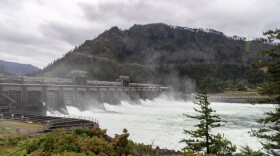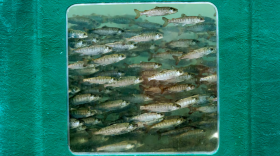-
Advocates, bureaucrats and biologists said the win is due to teamwork — and regional political power.
-
President Trump officially canceled an agreement between tribes and the federal government to help restore salmon in the Columbia River basin. Here's why it was canceled and what the implications might be.
-
A new memo from the president unravels a 2023 deal that put a halt to decades of lawsuits over the endangered fish
-
While there is political agreement that the bridge is a source of congestion, the replacement program has critics as well as champions, and its future is not certain.
-
Amazon’s push for small modular nuclear reactors is just the latest development in a decades-long fight over nuclear energy.
-
The project is expected to cost roughly $6 billion. Several design options are still under consideration.
-
The U.S. government recently recognized the harm caused by the dams and has promised to work to restore salmon runs but tribal members doubt much will change.
-
As salmon and steelhead swim upstream, they’re now facing one more challenge in fish ladders. It’s a non-native fish competing for space: the American shad.
-
Fin is the Washington Department of Fish and Wildlife’s mussel-smelling dog. Like a drug or bomb-smelling dog, his nose is particularly good at sniffing out invasive mussels.
-
The U.S. government has acknowledged the harmful effects dams have had on tribal fisheries. OPB reporter Tony Schick found that some of these actions were deliberate.
Play Live Radio
Next Up:
0:00
0:00
Available On Air Stations










